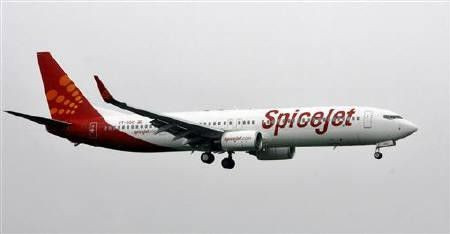SpiceJet May Sell Stake to Foreign Carrier

Budget carrier will evaluate selling stake to a foreign carrier if the government were to change foreign direct investment (FDI) rules, its chief executive said on Monday.
We will evaluate it on the same basis as anything else. We are a business. We don't need a bailout, whether it's from a government or from a foreign airline, Neil Mills told Reuters in a telephonic interview. He added that the airline was currently not in talks with any foreign carrier.
India allows up to 49 percent foreign investment in Indian carriers but bars foreign carriers from picking up stake. But with most carriers suffering losses, the government is now mulling allowing foreign airlines to pick up stake in local carriers.
The Centre for Asia Pacific Aviation (CAPA) has forecast a record $2.5-$3 billion loss for Indian airlines for the year ending March 2012. Kingfisher, India's second largest carrier by market share, may slide into bankruptcy if it is not able to raise fresh funds quickly.
FDI (foreign direct investment) should be allowed because FDI by airlines is no different from FDI from any other company, Mills said.
SpicJet on Friday reported a net loss of 2.4 billion rupees as fuel costs rose and there was no proportionate increase in fares due to intense competition. The company has been able to partly cover losses with the fresh fund infusion of 1.3 billion rupees by majority-owner Kalanithi Maran in October.
With this, Maran, who also controls media firm Sun TV, has reached the regulatory 5 percent ceiling of stake increase a year in SpiceJet and has not proposed to increase any further, Mills said. He added that there was no immediate plan to raise funds and any fresh fund raising plan would depend on the extent of losses in the coming quarters.
SITUATION IMPROVING
The operating atmosphere is getting better as demand is good and fares are gradually rising, Mills said, without giving any timeframe for the airline to come out of losses.
India flew 19 percent more passengers this year so far over last year as people continued to fly for business and leisure, but debt-crippled state-run Air India and Kingfisher, desperate to fill seats, have forced industry fares to remain low. SpiceJet is No. 4 with a share of 13.4 percent in the domestic market with six players.
I don't think there is a capacity issue particularly.... The only carriers that are really struggling to fill their airplanes are those that are not reliable, said Mills. For the airline to stop making losses, Mills said, the irrational pricing by some airlines has to stop and SpiceJet should get permission to fly overseas.
SpiceJet already flies to neighboring countries and has been awaiting permission to fly to 15 distant overseas destinations. International flights usually offer better margins as one can source low-cost fuel.
The budget carrier hasn't cancelled any flight recently, Mills said, adding that the airline had secured more flying slots in anticipation of fleet expansion and would continue to add flights as new planes are inducted.
It flies 256 flights now and plans to raise it to 293 by March-end. The Directorate General of Civil Aviation (DGCA) had said on Friday that Spicejet was flying 30 flights less than scheduled. SpiceJet plans to raise its fleet to 42 planes by March-end from 38 now and hire 300 staff to its existing 3,900.
SpiceJet shares, valued at about 10 billion rupees, have lost 70 percent this year in market capitalisation, while the broader Mumbai market lost nearly 15 percent. At 01:50 p.m., the company's shares were down 3 percent at 23.55 rupees on Monday in a little changed Mumbai market.
© Copyright Thomson Reuters 2024. All rights reserved.





















